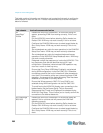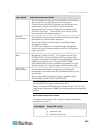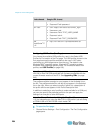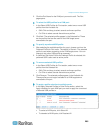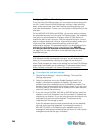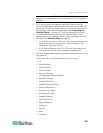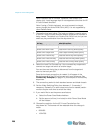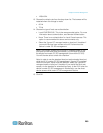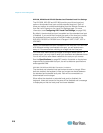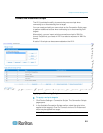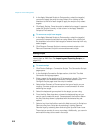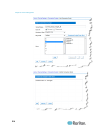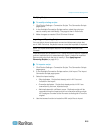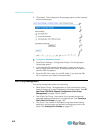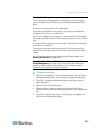
Chapter 8: Device Management
210
KX2-808, KX2-832 and KX2-864 Standard and Extended Local Port Settings
The KX2-808, KX2-832 and KX2-864 provide you with two local port
options: the standard local port and the extended local port. Each of
these port options is enabled and disabled from the Remote Console or
from the Local Console on the Local Port Settings page. For more
information, see Configuring KX II Local Port Settings (on page 206).
By default, the standard local port is enabled and the extended local port
is disabled. If you would like to extend the reach of the local port, enable
the extended local port and use a Cat5/5e/6 cable to connect to the
KX2-808, KX2-832 or KX2-864 from a Paragon II UMT, EUST, UST or
URKVMG.
Note: If the extended local port is enabled on the KX2-808, KX2-832 and
KX2-864 and nothing is connected to the port, you will experience a
delay of 2-3 seconds when switching to a target via the Local port.
You must have Administrator privileges to configure these options. To
access a port, you only need to enter your username and password once.
You do not have to enter these credentials for each port you access.
See the Specifications (on page 287) section for details on the devices
supported by the extended local port, as well as distance specifications
and supported CIMs.
KX2-808, KX2-832 and KX2-864 Connection Limitations
The standard and extended local ports share access to a target. When
both are enabled, the keyboard, video and mouse are shared between
the standard and extended local ports. Both will be connected to or
disconnected from the target.
When either the standard or extended local ports is disabled, the
keyboard, video and mouse for the ports will be disabled and a message
is displayed you that the local ports have been disabled.



